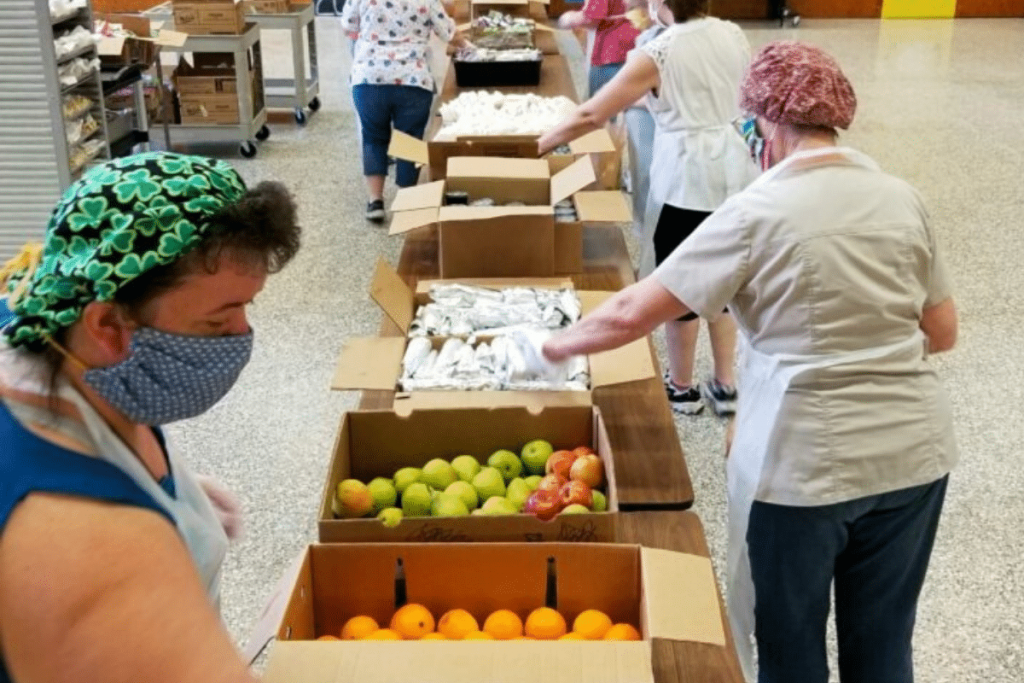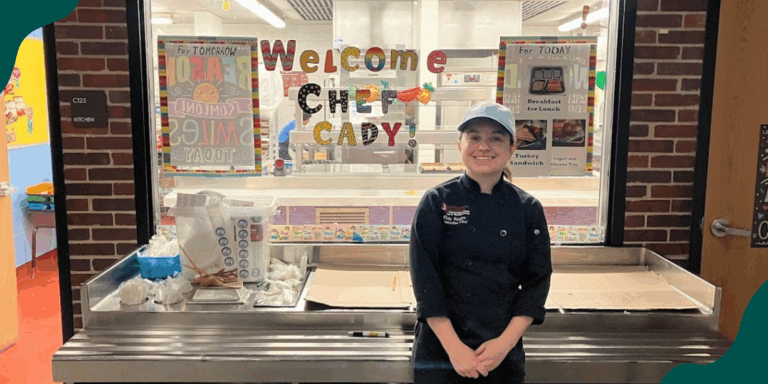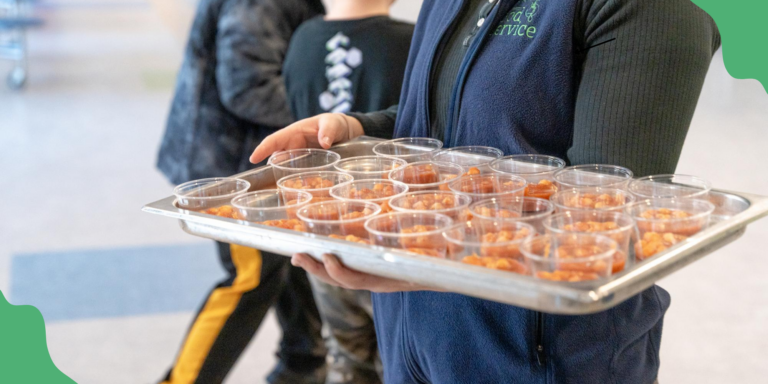Supporting Communities During COVID-19: May Policy Updates
We’re working with allied organizations to advocate for school meals, SNAP, and national service in COVID-19 recovery plans.
We’re working with allied organizations to advocate for school meals, SNAP, and national service in COVID-19 recovery plans.

The landscape of the COVID-19 pandemic is changing regularly, and so are federal and local policy responses. Here are the updates you need to know.
After more than a month-long extended recess due to COVID-19, senators returned to Washington D.C. this week to resume the regular session. While the House has delayed its reconvening, congressional leaders are reportedly working on the next major relief legislation.
While the future of the pandemic remains uncertain, one thing we know for sure is that more government actions are needed now to help families and kids stay nourished. Millions of people have lost their jobs, and hunger is growing at a staggering rate in communities across America. As Congress considers the next relief packages, FoodCorps is working with allied organizations to ensure that school meals, SNAP, and national service are part of any recovery plans. Here are key policies we are advocating for and actions you can take to raise your voice.
On the frontlines of COVID-19, school nutrition professionals are acting as first responders, putting their own health at risk to feed thousands of kids who rely on school meals—some of them two or even three meals a day. These leaders are more than just heroes; they are essential to kids’ lives every day, whether school is in session or not.
But while many are choosing to show up for their students, they are also fearing for their own safety. And schools are incurring unforeseen costs to adopt emergency feeding while facing a significant revenue loss due to school closures. Congress must ensure school nutrition staff have adequate personal protective equipment as well as funding relief so that school nutrition service operations can survive this pandemic financially and continue providing access to nutritious food when schools return to session.
While school meals are crucial in feeding kids through COVID-19, not all families can easily and safely access them. SNAP is another vital resource families can access to get the nourishment they need during these uncertain times. SNAP not only feeds families and kids, it strengthens local economies. Any COVID-19 economic recovery package must build on SNAP’s economic stimulus effect.
Across the country, AmeriCorps members are also playing a critical role in helping communities weather this public health and economic crisis. At FoodCorps, our AmeriCorps service members are continuing to show up for the communities they serve and connecting kids with healthy food in new ways—supporting schools in emergency meal distribution, maintaining school gardens, and sharing cooking and gardening lessons online.
In times of crisis, AmeriCorps members step forward to serve, as they have done numerous times in past crises. Now, a bill in Congress would expand AmeriCorps and Senior Corps to increase these programs’ ability to aid in COVID-19 recovery efforts. The Pandemic Response and Opportunity Through National Service Act would expand AmeriCorps to 750,000 positions over a three-year period; boost the AmeriCorps living stipend; and increase the education award to cover up to two years of public university tuition. FoodCorps is excited to join Voices for National Service along with more than 100 organizations in support of this legislation.
The USDA approved more states to implement the Pandemic Electronic Benefit Transfer (P-EBT)—a new nutrition benefit for low-income families with children who would have received free or reduced price meals if schools were open. Created through the Families First Coronavirus Response Act in March, P-EBT provides supplemental grocery dollars to help keep kids nourished. With the unemployment rate reaching a historic high as a result of COVID-19, P-EBT can supplement school meals and help fill the gap for many families.
Eligible families will receive money on new or existing EBT cards—an average of $5.70 per day per student for the duration of school closures, retroactive to when school initially closed. The P-EBT card works like a debit card to purchase food items anywhere EBT benefits are accepted. Children certified for free or reduced-price school meals and those who attend schools that offer free school meals to all students are eligible for P-EBT. Families who have recently lost their job or wages may also be eligible.
As of May 6, 20 states were approved to participate in P-EBT—including Alabama, Arizona, California, Connecticut, Delaware, Illinois, Kansas, Maine, Maryland, Massachusetts, Michigan, New Mexico, North Carolina, North Dakota, Oregon, Rhode Island, Vermont, Virginia, West Virginia, and Wisconsin. Implementation will look slightly different state to state. The Food Research and Action Center has put together a helpful P-EBT resource page with an FAQ and interactive map showing the approval status and implementation plans for each state.
Related read: States Are Embracing Extra Funds from Pandemic EBT to Cover Missing School Meals
FoodCorps is a non-partisan, non-profit organization. FoodCorps staff and FoodCorps AmeriCorps members may not participate in any partisan or seemingly partisan activities during work time charged to a Corporation for National and Community Service funded grant or while earning AmeriCorps service hours. No federal funds were used to prepare or distribute these advocacy actions.

The Policy Brief: 2025 State Policy Updates

Alumni Spotlight: Cady Molloy, School District Executive Chef

6 Careers in Food That Make a Difference